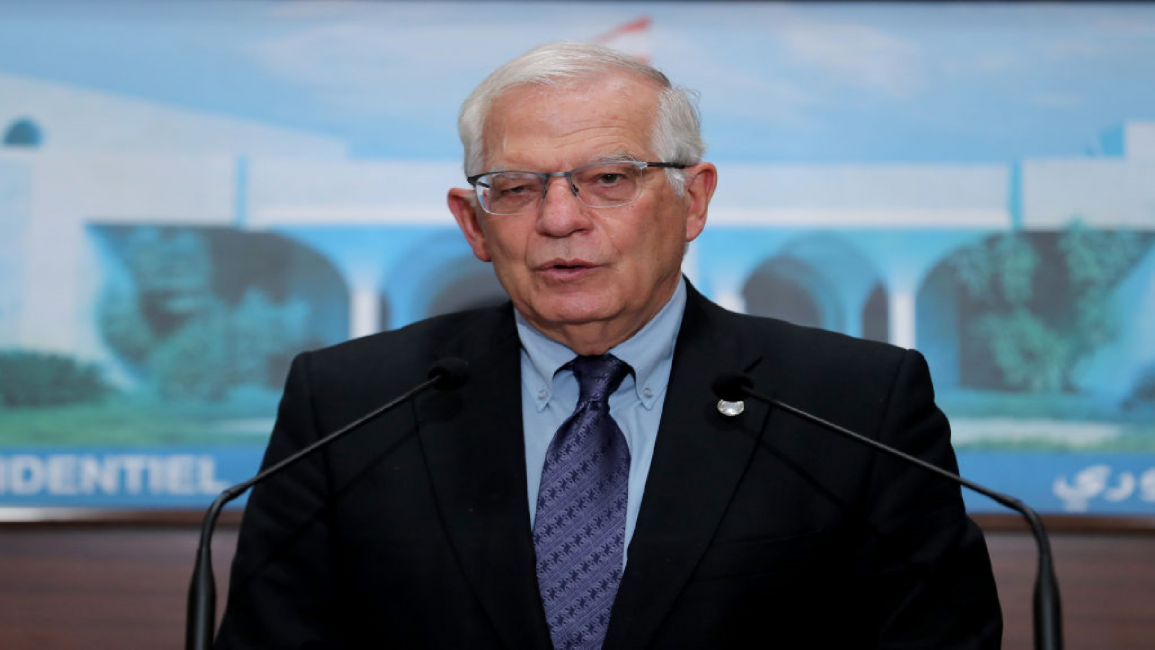Lebanon crisis caused by power struggle: EU envoy
The European Union's foreign policy chief warned Sunday that Lebanon risked facing total financial collapse and its leaders could face sanctions if they failed to form a new cabinet, blaming the country's political deadlock on their ongoing power struggle.
"The country is in big financial trouble and in order to solve the economic crisis they need a government," said Josep Borrell.
"It is clear it's a fight for the distribution of power. I have to say there is also strong mistrust," he told reporters before departing from Beirut after an official visit.
His comments came after meeting with Lebanon President Michel Aoun, Prime Minister designate-Saad Hariri, and Parliament Speaker Nabih Berri, all of whom have been gripped in a political deadlock since Hariri was appointed in October last year to form his third cabinet.
His predecessor, Hassan Diab, resigned after the massive explosion at the port of Beirut in August.
Borrell repeated warnings made previously by European officials over the possibility of imposing sanctions for the first time on Lebanese politicians for their failure to form a new government amid the country's worst-ever financial and economic crisis.
Borrell told Al Arabiya "we cannot wait to save Lebanon", adding the country was in need of "real authority".
The EU envoy urged politicians to carry out the much-needed reforms, fight corruption, and end the mismanagement of funds.
He said, however, the leaders he met were pessimistic about making progress in these regards.
Lebanon is governed by a unique power-sharing system in which positions across the government are allocated to certain sects. This, along with rife corruption and mismanagement since the end of the civil war in 1990, has plundered the small country into repeated crises and political deadlocks.
Its economic crisis began in late 2019 and has intensified in recent months, as the central bank's dollar reserves dry up and subsidies are gradually being lifted.



